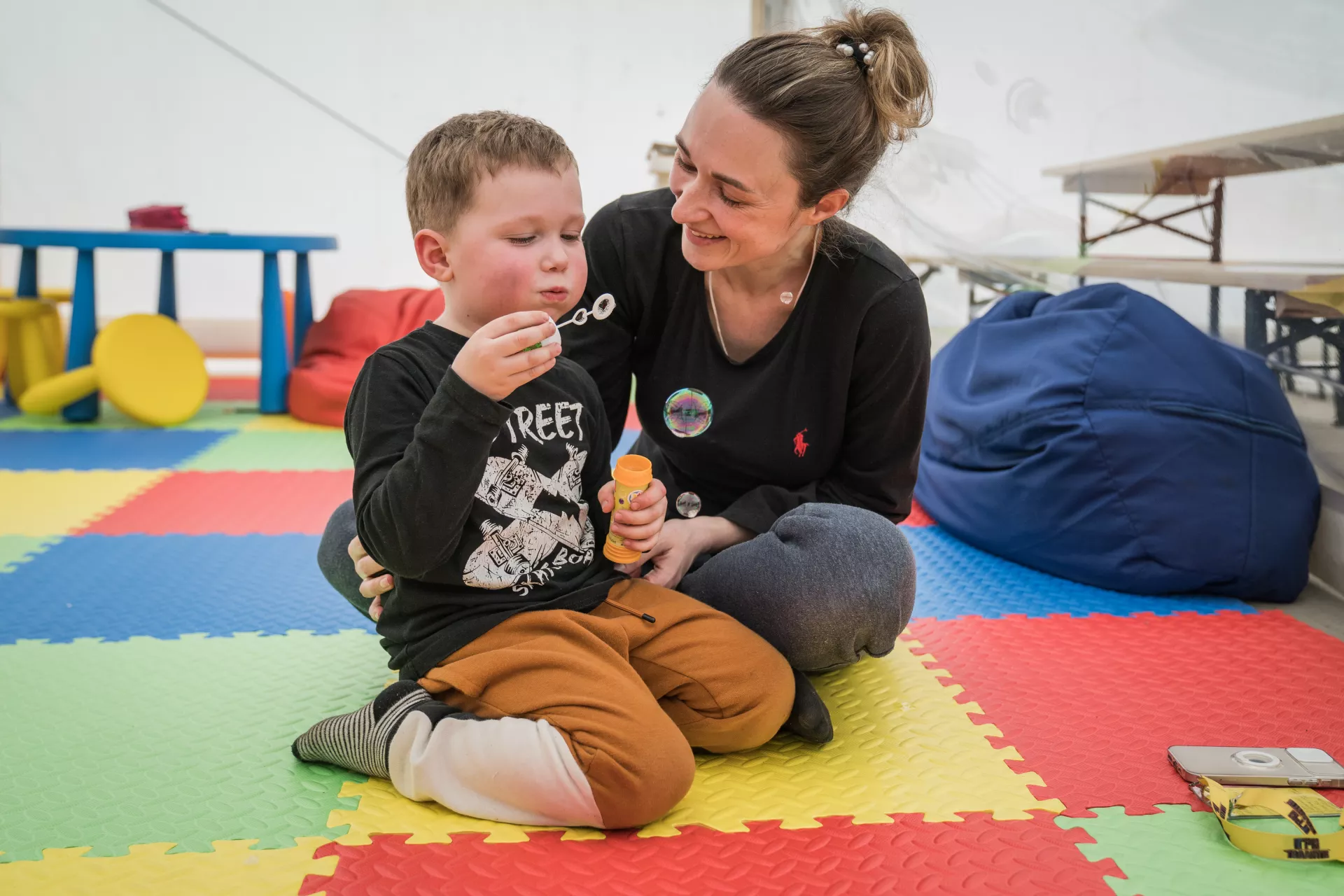How to provide first psychological aid to a child
Tips for parents on how to help a child and prevent the deterioration of his psycho-emotional state

- Available in:
- English
- Українська
The child's psyche, which is at the epicenter of hostilities, is constantly under negative influence. Every child who has witnessed hostilities is considered injured. Given the current circumstances not everyone has the opportunity to seek professional help, it is the parents who need to provide the child with first aid.
Here are some tips for parents on how to help a child and prevent the deterioration of his psycho-emotional state:
Day mode. Return the child to the usual routine of the day, it accelerates the "healing" of trauma.
Unfortunately, not everyone has the opportunity to return to their previous routine, so you can create a new routine for your child based on the opportunities you have. The child's daily routine should include: hygienic procedures, meals, learning elements, games with adults, free play, time for conversations and fairy tales (or interesting stories), sleep.
Discussion of disturbing events. Such conversations are very useful for emotional relief. After each descent into the shelter, alarms, sounds of hostilities, hold small family conversations, where everyone should tell how they felt during the whole anxiety period (at the beginning of the alarms, during the shelter and after).
This method allows the child to react emotionally, to see that his/her feelings coincide with the feelings of adults, and he/she is not alone, as well as to relieve emotional stress.
New rituals. Create new rituals that will help your child feel the unity and strength of the family. It can be reading aloud, evening hugs with the whole family, prayers together or singing.
Daily communication on various topics. Communication is a basic need of every person. In order for a child not to become isolated, he needs constant communication and emotional involvement of adults. You can choose different topics for conversation without focusing on traumatic events.
Emotional intimacy. One of the psychological components important for a child's survival is emotional intimacy with the parents. To strengthen and preserve it, you need to: hug the child, say that you love him/her, praise him/her (for courage, endurance, for some skills that the child demonstrates), play, laugh, share emotions.
Sense of humor. Try to joke and smile, make your child to smile. Humor has a therapeutic effect, supports and heals.




